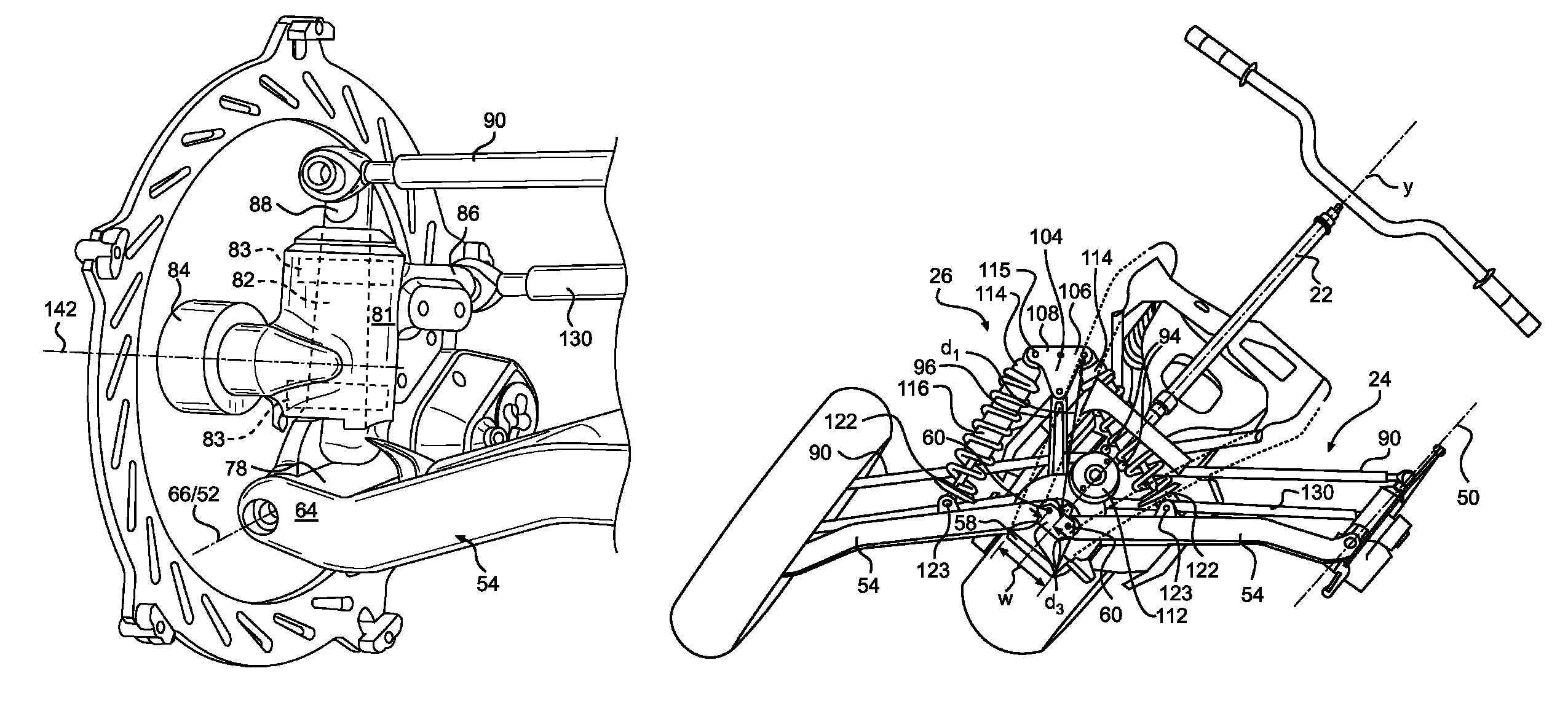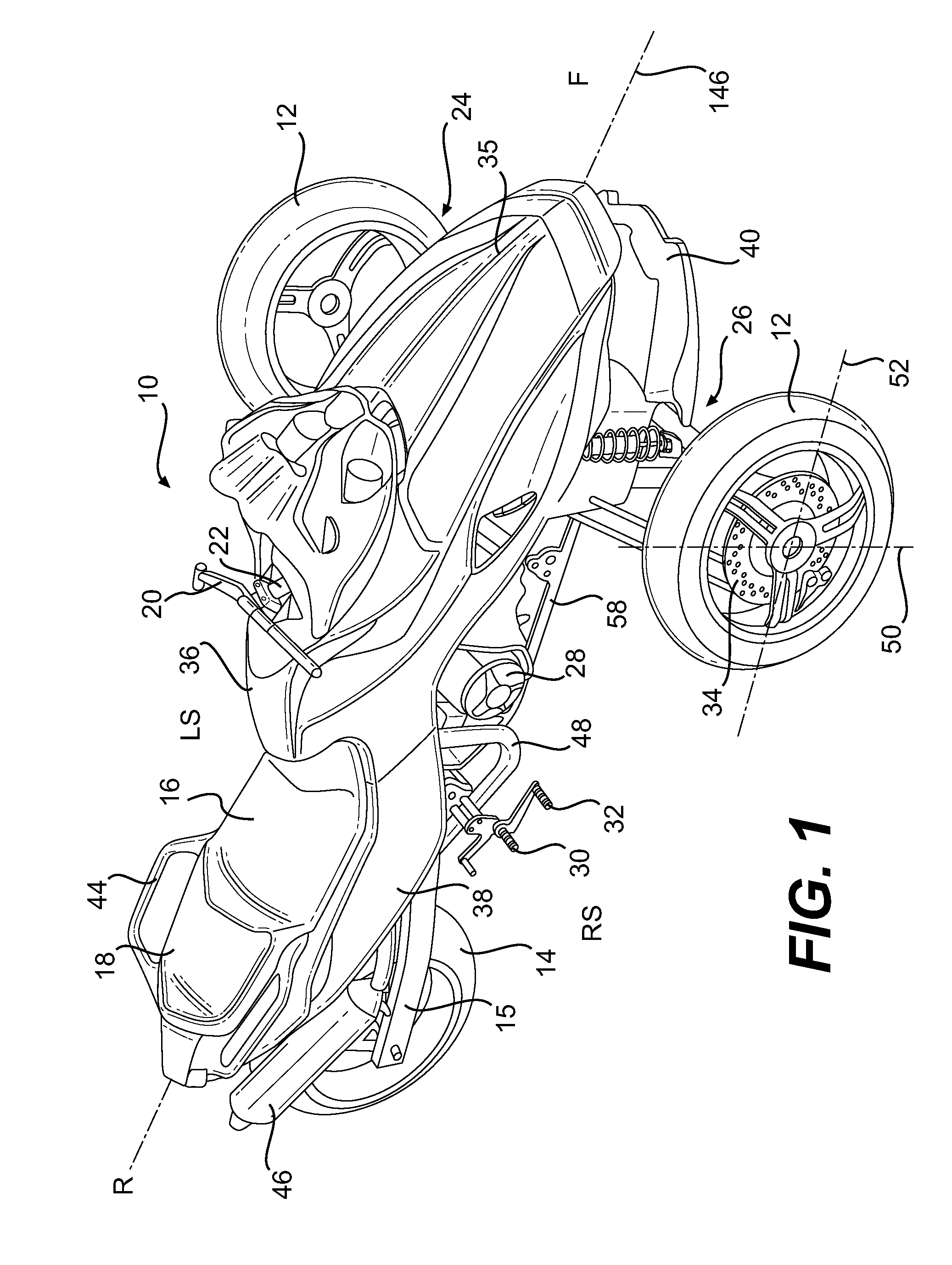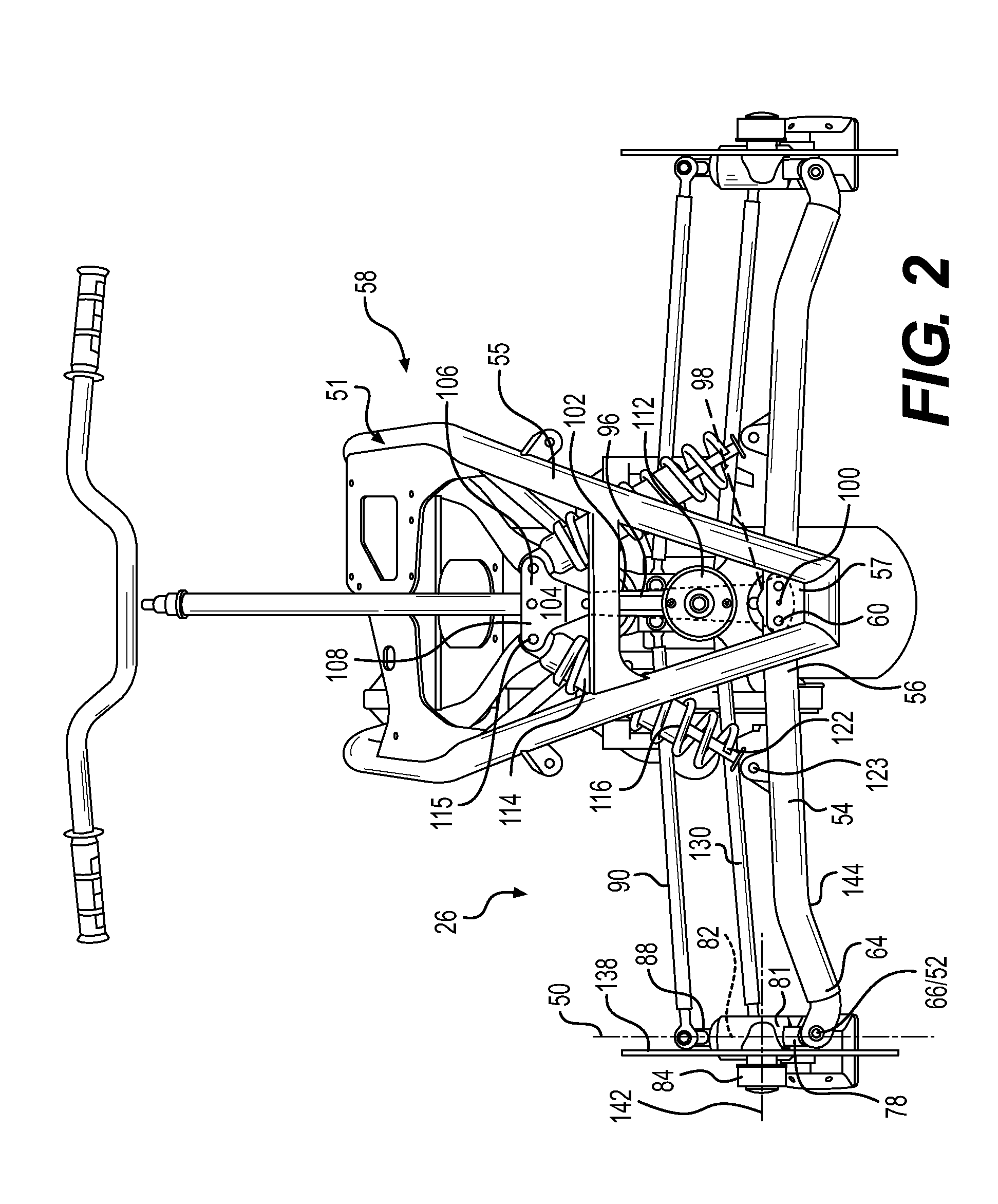Control system for leaning vehicle
a control system and vehicle technology, applied in the direction of interconnection system, steering parts, resilient suspensions, etc., can solve the problems of not intuitively thinking about turning the handlebar in one direction, having to overcome more resistance, and being more difficult or less enjoyable to drive than motorcycles
- Summary
- Abstract
- Description
- Claims
- Application Information
AI Technical Summary
Benefits of technology
Problems solved by technology
Method used
Image
Examples
first embodiment
[0058]Referring to FIG. 10A, Kθ is zero when the vehicle is travelling at a high speed, begins to increase in magnitude when the vehicle speed is below a threshold speed v2, and becomes larger in magnitude as the vehicle speed approaches zero. The sign of Kθ is always negative, indicating that the torque T resulting from the lean angle is a restoring force in the direction opposite the lean angle θ. The torque T opposes the frame 58 leaning with respect to the reference angle, resulting in a “stiffness” or lean resistance that increases in magnitude as the vehicle slows, effectively limiting the lean angle to smaller values at slower speeds. When the vehicle is stopped, the actuator 112 may optionally lock the frame 58 in a vertical position with respect to the reference angle. As a result, large leaning angles are prevented at low speeds, when excessive leaning could cause discomfort or inconvenience to the rider. In particular, when the vehicle 10 is stopped, the frame 58 is main...
second embodiment
[0059]Referring to FIG. 10B, Kθ is similar to the embodiment of FIG. 10A, and provides a restoring torque to limit or prevent leaning at low speeds. In this embodiment, Ks is zero at low speeds, such that the leaning behaviour of the vehicle 10 at low speeds is similar to the embodiment of FIG. 10A. At higher speeds, Ks gradually increases in magnitude until it reaches an approximately constant value above a second threshold speed v1. In this embodiment, when the speed is above v1 and the driver exerts a steering torque s on the handlebar 20 indicative of his desire to turn the vehicle 10, the actuator 112 assists the driver by applying a leaning torque T to supplement the leaning torque resulting from the geometry of the vehicle. In this manner, the driver can effectively lean the vehicle 10 during a turn, with less effort than would ordinarily be required in a free-leaning vehicle, at least at speeds above v1. The sign of Ks is always negative, indicating that the vehicle 10 is c...
third embodiment
[0060]Referring to FIG. 10C, Kθ is similar to the embodiment of FIG. 10A, and provides a restoring torque to limit or prevent leaning at low speeds. In this embodiment, Ks is zero at low speeds, such that the leaning behaviour of the vehicle 10 at low speeds is similar to the embodiment of FIG. 10A. At higher speeds, Ks has a small negative value, such that when the driver exerts a steering torque s on the handlebar 20 the actuator 112 exerts a small leaning torque T that is preferably approximately sufficient to overcome the internal resistance of the actuator 112 and the front suspension assemblies 24, 26 that would normally not be present on a two-wheeled leaning vehicle such as a conventional motorcycle. In this manner, the actuator 112 provides stability against tipping at low speeds, and allows the frame 58 to lean at higher speeds as freely as a motorcycle, but does not actively assist leaning. The map of Ks may optionally be calibrated to duplicate the ride feel of a partic...
PUM
 Login to View More
Login to View More Abstract
Description
Claims
Application Information
 Login to View More
Login to View More - R&D
- Intellectual Property
- Life Sciences
- Materials
- Tech Scout
- Unparalleled Data Quality
- Higher Quality Content
- 60% Fewer Hallucinations
Browse by: Latest US Patents, China's latest patents, Technical Efficacy Thesaurus, Application Domain, Technology Topic, Popular Technical Reports.
© 2025 PatSnap. All rights reserved.Legal|Privacy policy|Modern Slavery Act Transparency Statement|Sitemap|About US| Contact US: help@patsnap.com



